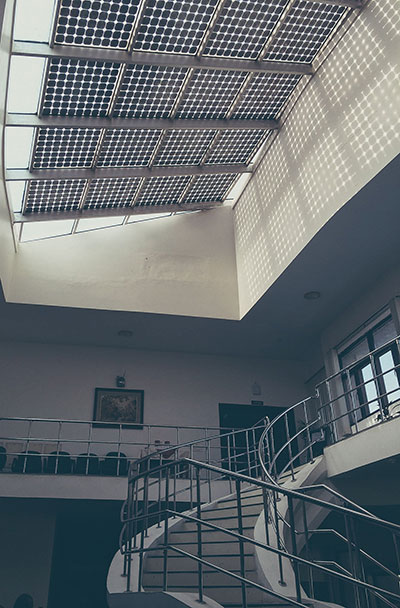Mission & Impact

MISSION
The Fairconditioning programme, set in India, emanates from Noé21, a UN registered, not-for- profit NGO headquartered in Geneva. The goal motivating Noé21 is to identify, evaluate, and promote powerful as well as realistic solutions to reduce greenhouse gas (GHG) emissions, using a catalytic approach.
In Switzerland, Noé21 has been active in fostering the deep retrofitting of building stock to reduce the outstanding contribution to global warming from heating buildings. In India, where the construction of homes and buildings is thriving, Noé21 identified a large potential for avoiding future GHG emissions in the related cooling sector. Buildings and homes designed with no regard for the local climate and limited, costly energy reserves are both a direct cause of increased mechanical cooling demands and otherwise avoidable energy costs at the individual and national levels, causing irreversible harm to the environment.
The amount of energy (and related GHG emissions) necessary to cool Indian buildings in the years ahead will depend on how they are designed and built today and in the coming years, technology used for cooling, and the behaviour and operation of the equipment by occupants of air conditioned spaces. The potential to reduce the energy demand from buildings in India is huge considering this sector’s growth rate and the current lack of regard for how much energy and GHG emissions could be avoided. The energy demand to cool interiors could be drastically reduced, provided that actionable information, financial models, and relevant tools are made available at the appropriate levels of this complex chain, from the training of architects to the actual construction site, from the implementation of green building codes to the choice of the most efficient cooling technology on the market.
Outreach & Beneficiaries
The programme extends across the following cities: Mumbai, Delhi, Kolkata, Chennai, Bangalore, Pune, Ahmedabad and Hyderabad
A total of 96 workshops covering 24 Engineering colleges, 120 Architecture colleges, 288 Engineering firms, and 288 Architect firms.
A total of 10,512 Engineering students, Engineers, Architecture students, Architecture professors, and Architects would be influenced and benefitted at the end of the programme.
Additionally, 240 Engineering student firms, and 1,200 Architecture students firms would be influenced as a result of these workshops.
Moreover, the Sustainable Cooling Adopters Network, through 256 buildings (Banks, 3-star hotels, offices, and 3 BHK residences) would seek to avoid 56,371.9 MT of GHG emissions.
In addition to the immediate calculated outreach, beneficiaries, and GHG savings, the pro- gramme would essentially create a ripple effect, the benefits of which would be realised decades from now.
